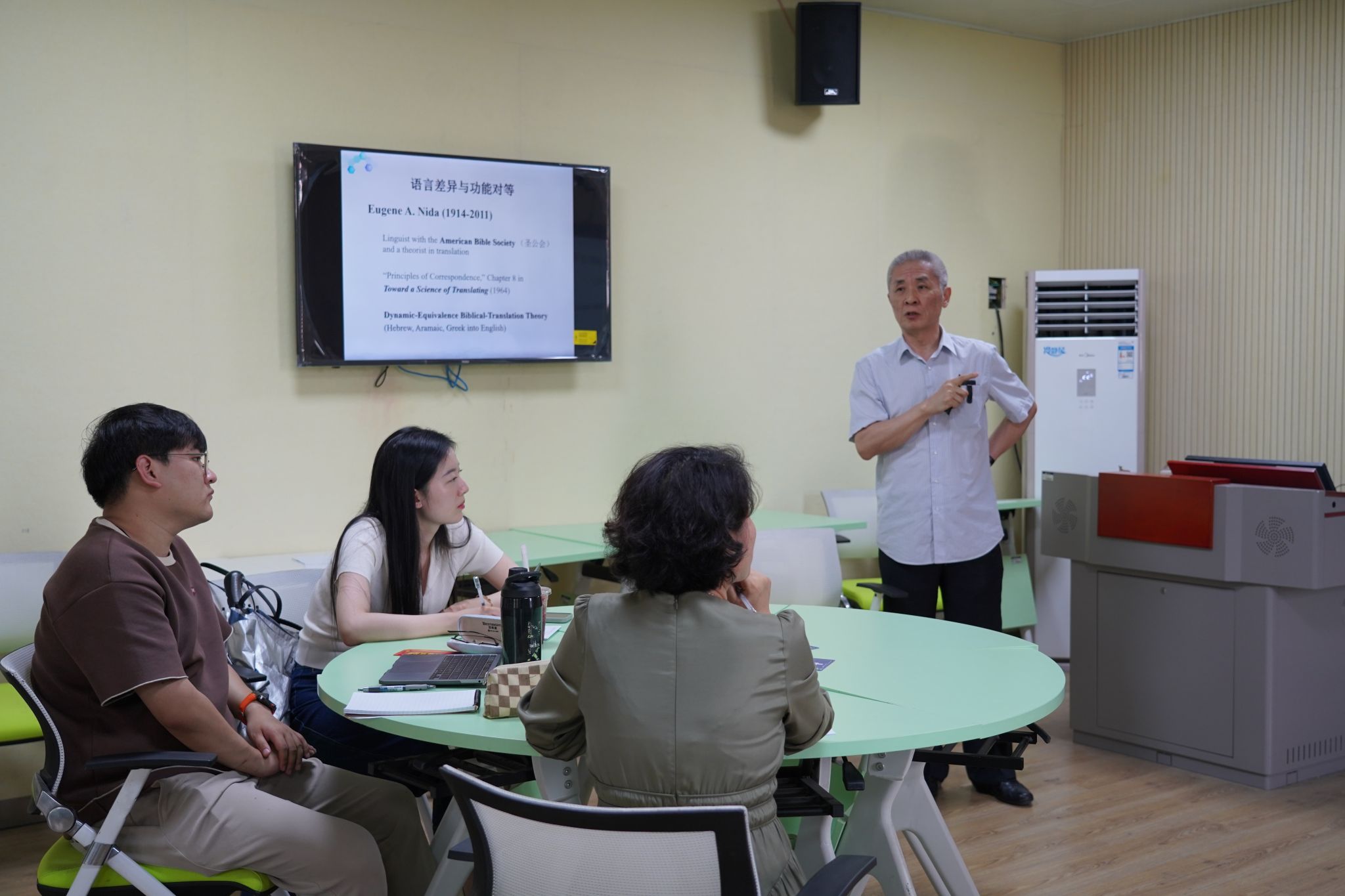On the afternoon of June 8, 2023, Lecture 24 of “Zhongnan Culture Translation Forum” Lecture Series, jointly hosted by the School of English Language & Culture and the School of Translation Studies, was held in Classroom 2401 of Xi’an Fanyi university. This lecture on “Language Differences and Functional Equivalence” was given by Wang Jihui, professor from Peking University and distinguished professor from Beijing Language and Culture University. Yuan Xiaolu, dean of the School of English Language & Culture and the School of Translation Studies, presided over the lecture and teachers and students from the two schools attended the lecture.
Professor Wang Jihui holds a Ph.D. in English from Purdue University. He is a doctoral advisor in Peking University, and the founding director of the Master of Translation and Interpreting (MTI) Education Center of Peking University. He is also a distinguished professor of Beijing Language and Culture University, an honorary professor of University of Exeter in the UK, and a Fulbright visiting scholar at Harvard University in the US. Professor Wang is a senior translator of China Foreign Languages Publishing Administration, an ex-leader of the English examination group of the National Education Examinations Authority, who is in charge of setting the examinations in Postgraduate Entrance Examination. He is an expert for English Subject Evaluation and a review expert for individual scientific research projects in the Ministry of Education, and a member of the National Standardization Committee for Terminology and Content Resources. Wang Jihui is not only the founder and council chairman of Boya Translation Culture Salon, but also the founder of “China Translation Profession Forum”. Professor Wang, the founder and co-chairman of “Language Services China 40”, is the editor-in-chief of Translation World and Papers on Applied Translatology. He mainly researches medieval English literature, historical linguistics, English history, western textual bibliography, translation studies, and translation education.
In the beginning, Professor Wang explained to us what functional equivalence is. Then, he introduced two translation methods that can be adopted, namely: 1. formal equivalence: emphasizing that the source and receptor languages should correspond to each other in words, sentences and word order, which makes the translation sometimes unnatural and vague; 2. dynamic equivalence: using, in the receptor language, a word order different from that in the source language, on the premise of accurately expressing information conveyed by the source language. Professor Wang pointed out that, according to Nida’s equivalence theory, “dynamic equivalence” is applied first, which reproduces in the receptor language the closest natural equivalent of the source language message, and then “functional equivalence” is applied. In this theory, content has the top priority, followed by form. In Nida’s opinion, the purpose of equivalence is to express information accurately. The key points of Nida’s theory are content equivalence and language equivalence. The former is dominant and the latter is supplementary. This is because it is difficult for languages belonging to different language families, for example, ancient Chinese prose and English prose, to be linguistically equivalent. Professor Wang further explained the evolution and characteristics of Chinese characters and the Chinese language, the evolution of the English language and characters, and differences between Chinese and English languages.
At the end of the lecture, the teachers and students from the School of English Language & Culture and the School of Translation Studies exchanged academic views with Professor Wang and asked some questions, which were answered in detail by Professor Wang. The lecture enabled the teachers and students to have a better understanding of the functional equivalence theory, which will facilitate subsequent translation studies. The two schools will continue to carry out the “Zhongnan Culture Translation Forum” Lecture Series and other academic exchange activities on Zhongnan culture, further build up their characteristic majors, and lay a solid foundation for building up their national first-class majors.
